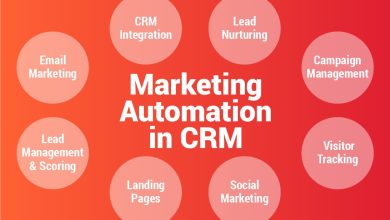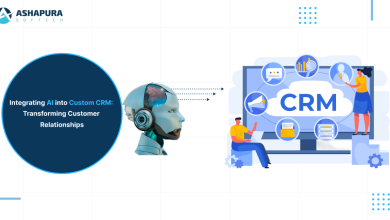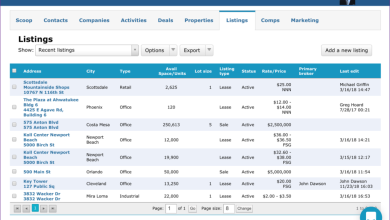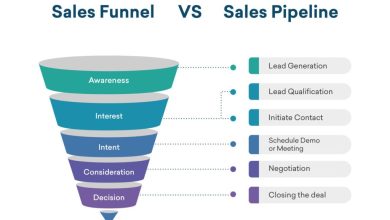AI-Powered CRM Software Transforming Customer Relationships for a Connected Future
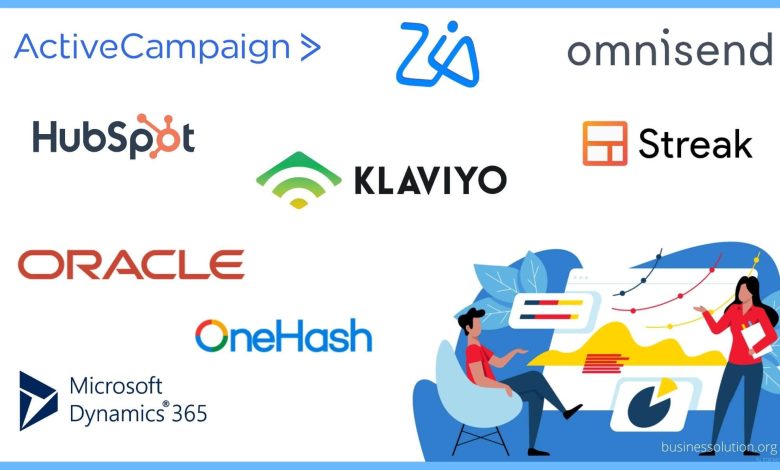
AI-Powered CRM Software: Transforming Customer Relationships sets the stage for this enthralling narrative, offering readers a glimpse into a story that is rich in detail and brimming with originality from the outset. With AI at the heart of CRM, businesses are now empowered to reimagine how they connect with customers, using intelligent insights and automation to build deeper, more meaningful relationships.
Modern AI-powered CRM solutions go far beyond traditional systems by integrating advanced features like machine learning, natural language processing, and predictive analytics. These technologies enable organizations to deliver personalized experiences, automate repetitive tasks, and uncover valuable customer insights—all in real time. The result is smarter decision-making, enhanced engagement, and a competitive edge in today’s fast-paced digital landscape.
Introduction to AI-Powered CRM Software

AI-powered Customer Relationship Management (CRM) software represents a significant evolution from traditional CRM systems. Traditional CRMs primarily act as centralized databases for customer information, tracking interactions, sales, and support tickets. In contrast, AI-powered CRMs integrate advanced artificial intelligence capabilities such as machine learning, natural language processing, and predictive analytics. These modern systems automate data analysis, uncover actionable insights, and deliver personalized experiences for customers at scale, fundamentally transforming how organizations manage relationships and drive business growth.
The integration of artificial intelligence into CRM platforms has become crucial for modern businesses. As customer expectations rise and the volume of data expands, manual data handling and generic outreach methods are no longer sufficient. AI empowers organizations to anticipate customer needs, automate repetitive tasks, and make smarter, data-driven decisions. This leads to increased efficiency, higher customer satisfaction, and ultimately, greater retention rates. The adoption of AI-powered CRM solutions is now seen as a strategic imperative, particularly in highly competitive industries such as retail, finance, and telecommunications.
Distinctive Features of AI-Powered CRM Software
AI-powered CRM software distinguishes itself from non-AI alternatives through a combination of intelligent automation, deep data insights, and enhanced customer engagement capabilities. These features enable businesses to move beyond basic contact management and manual reporting.
Before delving into the specific features, it’s important to recognize how these advancements support business growth and operational excellence. AI-driven functionalities empower companies to not only track customer interactions, but also proactively respond to trends, predict behaviors, and streamline workflows.
- Predictive Analytics: AI-enabled CRMs use machine learning to analyze historical data and forecast future customer actions, such as likely purchases or churn. For example, Salesforce Einstein can score leads based on their conversion probability, allowing sales teams to focus their efforts where they are most likely to succeed.
- Personalized Recommendations: These systems can suggest products, services, or content tailored to individual customers, enhancing upselling and cross-selling opportunities. In retail, AI-powered CRMs help companies like Amazon provide personalized product recommendations that drive higher sales conversion rates.
- Automated Task Management: Routine tasks, such as follow-up reminders, appointment scheduling, and data entry, are automated, freeing up personnel to focus on high-value activities. This capability reduces errors and accelerates response times, directly impacting customer satisfaction.
- Natural Language Processing (NLP): AI-powered CRMs can interpret and respond to customer queries through chatbots and virtual assistants. For instance, Zendesk’s AI features leverage NLP to automate responses for common support issues, improving resolution speed and consistency.
- Sentiment Analysis: These platforms can analyze customer communications—such as emails and social media posts—to gauge sentiment, enabling businesses to proactively address dissatisfaction or leverage positive feedback for marketing.
- Intelligent Lead Scoring and Segmentation: AI algorithms identify the most promising leads and segment customers for targeted marketing campaigns, maximizing conversion rates and ROI.
AI-powered CRM platforms are not just upgrades to legacy systems—they are transformative tools that empower organizations to build deeper, more meaningful relationships with customers through automation, insight, and personalization.
Core Capabilities of AI in CRM Solutions
AI technologies are transforming how businesses manage and cultivate customer relationships. By integrating machine learning (ML) and natural language processing (NLP) into CRM platforms, companies are able to automate routine tasks, gain deeper insights from data, and provide more personalized customer experiences. These AI-driven functionalities are driving the next generation of CRM solutions, enabling organizations to respond faster and more intelligently to customer needs.
Machine learning algorithms analyze historical and real-time data within CRMs to identify patterns, forecast trends, and recommend optimal actions. Natural language processing allows CRMs to interpret and process unstructured data from emails, chats, support tickets, and social media conversations. Together, these capabilities empower sales, marketing, and support teams to work smarter, make better decisions, and deliver more relevant engagement at every stage of the customer journey.
Key AI-Driven Features Enhancing CRM Functionality
AI is rapidly expanding the toolbox available to CRM users by introducing advanced features that go beyond traditional data storage and retrieval. The following list highlights the most impactful capabilities that AI brings to CRM solutions, making customer management more intuitive, proactive, and effective.
- Predictive Analytics: AI models forecast future customer behaviors, such as purchase likelihood or churn risk, by analyzing historical interactions and contextual factors.
- Lead Scoring: Machine learning algorithms automatically rank leads based on their engagement and propensity to convert, helping teams prioritize high-value prospects.
- Automated Workflows: AI-powered process automation reduces manual tasks by triggering actions such as follow-up emails, ticket assignments, or contract renewals based on customer activity or sentiment.
- Personalized Recommendations: CRM platforms suggest tailored content, products, or next-best actions to customers—drawing from past preferences and behavioral patterns.
- Sentiment Analysis: Natural language processing gauges customer sentiment from emails, support tickets, or social posts, allowing teams to address dissatisfaction proactively.
- Chatbots and Virtual Assistants: Intelligent conversational agents resolve common customer issues and answer inquiries 24/7, improving response times and freeing up human resources for complex cases.
Enhanced Data Segmentation and Customer Profiling with AI
Robust customer segmentation and detailed profiling are critical to effective CRM strategies. AI revolutionizes this process by uncovering hidden patterns and dynamically grouping customers based on a much wider range of attributes than manual methods allow.
AI-driven segmentation utilizes clustering algorithms to analyze immense datasets, often considering demographic, behavioral, and psychographic factors simultaneously. For example, an AI-powered CRM might identify a segment of customers who frequently purchase during promotional periods and engage highly on social media, allowing marketers to craft highly targeted campaigns.
“AI-enabled customer profiling transforms static data into actionable intelligence, empowering businesses to deliver relevant offers and communications at exactly the right moment.”
Furthermore, real-world use cases demonstrate how AI enhances profiling accuracy. Leading ecommerce retailers use AI to continuously update customer personas based on real-time browsing and purchasing data, resulting in a 20–30% increase in campaign effectiveness compared to traditional segmentation. As a result, organizations can dynamically adapt their strategies, ensuring that every interaction feels personalized and relevant from the customer’s perspective.
Enhancing Customer Relationships through AI
Artificial Intelligence (AI) has fundamentally reshaped how businesses interact with their customers, enabling smarter, faster, and more meaningful engagement at every touchpoint. By leveraging predictive analytics, machine learning, and automation, AI-powered CRM solutions offer organizations the ability to anticipate customer needs, deliver hyper-personalized experiences, and strengthen long-term loyalty. This transformation is evident across marketing, sales, and customer support, where AI-driven tools are optimizing each phase of the customer journey.
As companies continue to adopt AI in their CRM strategies, they unlock powerful capabilities for customer engagement, personalization, communication, and retention. These enhancements not only streamline processes but also build trust and satisfaction, helping businesses stand out in competitive markets.
AI-Driven Optimization of Customer Engagement, Personalization, Communication, and Retention
AI technologies offer a variety of ways to maximize the quality of business-to-customer relationships. The table below Artikels key areas where AI boosts CRM effectiveness, providing clear benefits for both organizations and their customers.
| Customer Engagement | Personalization | Communication | Retention |
|---|---|---|---|
| Real-time behavior analysis enables businesses to interact with customers at optimal moments, increasing relevance and responsiveness. | Machine learning algorithms segment audiences dynamically, tailoring offers and content to individual preferences. | Natural Language Processing (NLP) powers intelligent chatbots for instant, context-aware conversations across platforms. | Predictive analytics identify churn risks early, prompting proactive outreach and personalized retention campaigns. |
| AI-driven recommendation engines suggest relevant products or services, enhancing upselling and cross-selling opportunities. | Customized journey mapping ensures every customer receives the most pertinent experience, from onboarding to loyalty programs. | Automated messaging adapts language and tone based on customer sentiment and past interactions. | Automated feedback analysis pinpoints satisfaction drivers, informing strategies that nurture long-term relationships. |
Hyper-Personalized Marketing and Sales Strategies Powered by AI
With access to massive amounts of real-time data, AI enables marketing and sales teams to deliver campaigns and outreach that resonate on an individual level. This hyper-personalization is a significant evolution from traditional segmentation, as AI continuously learns and adapts based on each customer’s interactions and preferences.
“Hyper-personalization through AI transforms generic mass marketing into tailored experiences, significantly improving conversion rates and customer satisfaction.”
AI algorithms analyze web activity, purchase history, and demographic information to recommend the right products at the right time. For example, global retailers like Amazon and Netflix leverage AI to suggest items or content that a user is most likely to engage with—often resulting in substantial boosts to sales and engagement metrics. Companies can also use AI-driven lead scoring to automatically prioritize prospects based on their likelihood to convert, ensuring sales teams focus efforts efficiently.
AI-Powered Chatbots and Virtual Assistants Transforming Customer Support
The integration of AI-powered chatbots and virtual assistants in CRM systems has revolutionized customer support by providing fast, accurate, and always-available service.
Businesses now deploy sophisticated virtual agents capable of understanding complex queries, resolving issues, and escalating cases when human intervention is required. For instance, Bank of America’s “Erica” virtual assistant has handled millions of customer interactions, delivering instant account updates and bill reminders while reducing wait times for live agents. Similarly, Sephora’s chatbot uses AI to offer beauty tips and product recommendations, enhancing the online shopping experience.
These AI-driven support tools not only improve response efficiency but also gather valuable customer insights, enabling continuous refinement of products, services, and user experiences. By automating routine tasks and freeing human agents to address more complex issues, organizations achieve higher satisfaction scores and build stronger customer loyalty.
AI-Driven Sales and Marketing Automation
AI is rapidly transforming the landscape of sales and marketing by introducing intelligent automation across the entire customer journey. From identifying high-potential leads to nurturing them with tailored content and optimizing campaigns in real time, AI-driven CRM software enables businesses to operate more efficiently and respond to customers’ needs with greater precision. These advancements allow sales and marketing teams to focus on strategy and relationship building, while routine tasks and data analysis are handled seamlessly in the background.
By leveraging machine learning and predictive analytics, AI supercharges the automation of sales processes—from the earliest stages of prospecting to the final steps of closing a deal. It can anticipate customer behavior, recommend next-best actions, and even personalize outreach at scale, leading to higher conversion rates and improved customer satisfaction.
Sales Automation Tasks Optimized by AI and Their Business Benefits
The integration of AI with CRM platforms empowers companies to streamline critical sales tasks while unlocking new opportunities for growth. The table below summarizes several key sales automation tasks facilitated by AI and Artikels the direct business benefits realized through these enhancements.
| Sales Automation Task | AI Capabilities | Business Benefit |
|---|---|---|
| Lead Scoring & Prioritization | Predictive analytics evaluates lead quality using behavioral and demographic data. | Focuses sales efforts on high-potential prospects, improving conversion rates. |
| Automated Follow-Ups | Intelligent scheduling and personalized message recommendations based on customer interaction patterns. | Reduces manual workload and ensures timely, relevant communication with prospects. |
| Opportunity Forecasting | Machine learning models analyze historical data to predict deal closure probability. | Improves forecasting accuracy and supports better pipeline management. |
| Personalized Sales Outreach | Natural language processing crafts individualized emails and messages tailored to customer needs. | Enhances engagement and fosters stronger customer relationships. |
| Data Entry Automation | AI-powered tools extract, validate, and log sales data from emails, calls, and documents automatically. | Minimizes errors and frees up sales reps to focus on revenue-generating activities. |
| Sales Coaching Insights | AI analyzes call transcripts and sales interactions to provide actionable feedback for sales reps. | Accelerates skill development and optimizes sales team performance. |
AI automation in sales not only accelerates processes but also elevates decision quality by harnessing data-driven insights at every stage of the customer journey.
Enhancement of Marketing Campaign Optimization and Real-Time Content Personalization
AI has revolutionized marketing campaign management by automating audience segmentation, optimizing campaign timing, and providing actionable recommendations for ad spend allocation. Machine learning algorithms continuously analyze campaign performance metrics, adjusting strategies on the fly to maximize ROI and minimize waste. Major brands such as Netflix and Amazon use AI-driven recommendation engines to deliver personalized content and offers to users, significantly increasing engagement and conversion rates.
Real-time content recommendation is another area where AI excels. By processing browsing history, purchase patterns, and user preferences, AI suggests highly relevant products or content to individual customers as they interact with digital platforms. For example, an e-commerce CRM can highlight trending items or exclusive deals based on a shopper’s previous interests, leading to a more satisfying and personalized customer experience.
- AI identifies optimal channels and timings for campaign delivery, ensuring messages reach audiences when they’re most receptive.
- Dynamic creative optimization uses AI to test and refine ad variations, increasing click-through and conversion rates based on live data.
- Predictive analytics anticipate customer behaviors, allowing marketers to proactively tailor offers that align with individual needs.
“Real-time AI-driven personalization turns every customer interaction into a relevant and memorable experience, directly impacting loyalty and lifetime value.”
For visualization, imagine a dashboard displaying real-time campaign analytics with AI-generated recommendations for budget reallocation. Next to it, a live feed showcases product recommendations being personalized for website visitors, adapting instantly as new behavioral data is received. This vivid illustration demonstrates how AI seamlessly integrates insights and action, creating a closed loop of continuous optimization in both sales and marketing.
Data-Driven Decision Making and Customer Insights
AI-powered CRM platforms have rapidly advanced the way organizations interpret and act on customer information. By continuously collecting and analyzing real-time data from multiple channels—such as email, social media, support interactions, and purchasing history—these systems deliver actionable insights that enable businesses to make more informed decisions. The result is a more agile, responsive approach to customer engagement and business growth.
Modern AI-driven CRMs not only aggregate massive amounts of customer data but also transform it into meaningful intelligence. Using sophisticated algorithms, these tools uncover hidden patterns, forecast future behaviors, and recommend optimal next steps for customer engagement. This dynamic, insights-driven strategy ensures that organizations are not just reacting to events but proactively shaping customer experiences based on accurate, up-to-the-minute data.
Predictive Analytics Use Cases Informing Strategic Decisions
Predictive analytics in AI-powered CRMs extends well beyond simple reporting. By leveraging advanced models that learn from historical and real-time data, businesses can anticipate customer actions, identify sales opportunities, and mitigate risks with greater precision. The following use cases illustrate how predictive analytics empowers strategic decision-making across various industries:
- Churn Prediction and Retention Strategies: AI algorithms detect early warning signs of customer dissatisfaction, allowing companies like telecom providers or subscription services to intervene with targeted retention campaigns before customers leave.
- Sales Forecasting: By analyzing past deals, seasonal trends, and market dynamics, CRMs deliver highly accurate sales projections. For example, retail chains use these forecasts to optimize inventory and staffing ahead of peak seasons.
- Lead Scoring and Prioritization: AI assesses lead engagement and historical conversion data to automatically prioritize sales outreach. Software vendors, for instance, improve conversion rates by focusing on prospects most likely to buy.
- Personalized Product Recommendations: E-commerce companies use predictive analytics to suggest products each customer is most likely to purchase, based on browsing behavior and purchase history, boosting average order values and customer satisfaction.
- Customer Lifetime Value (CLV) Estimation: Financial institutions calculate the potential long-term value of clients, informing marketing spend and cross-selling opportunities.
- Proactive Support Case Management: AI predicts which support cases might escalate into complaints or churn risks, allowing customer service teams to prioritize and resolve them quickly.
Visualization Techniques for Customer Journey Mapping and Trend Analysis
To make vast datasets comprehensible and actionable, AI-powered CRMs employ a range of innovative visualization techniques. These visual tools help teams understand complex customer interactions, identify friction points, and track evolving preferences over time, all at a glance.
- Dynamic Customer Journey Maps: AI generates interactive timelines that illustrate every touchpoint in the customer lifecycle—from initial contact to post-sale engagement. Businesses can visually pinpoint where leads drop off or convert, enabling targeted improvements in communication and experience.
- Trend Heatmaps: Color-coded heatmaps highlight periods of high and low customer activity, such as spikes in service requests after product launches or promotions. These visual cues make it easier to spot patterns and quickly drill down into underlying causes.
- Cohort and Segmentation Analysis Dashboards: CRM dashboards visualize how different customer groups behave over time, comparing cohorts based on acquisition channels, demographics, or engagement levels. For example, a B2B tech firm can see how enterprise clients’ product adoption journeys differ from those of small businesses.
- Funnel Conversion Charts: These charts visually represent the percentage of prospects moving through each stage of the sales or marketing funnel, allowing managers to identify and address bottlenecks.
“AI-powered visualizations transform big data into clear, actionable narratives, bringing customer stories to life and driving smarter, faster decisions.”
A typical dashboard example might include a multi-layered graph showing the customer journey: the x-axis illustrates the timeline from initial engagement to repeat purchase, while the y-axis tracks engagement levels. Each significant event (such as opening an email, making a purchase, or submitting a support ticket) is marked with distinct icons or color codes. Users can interact with the visualization to filter by segment, time frame, or outcome, gaining immediate insight into what drives customer success or drop-off.
Integrating AI-Powered CRM with Other Business Tools
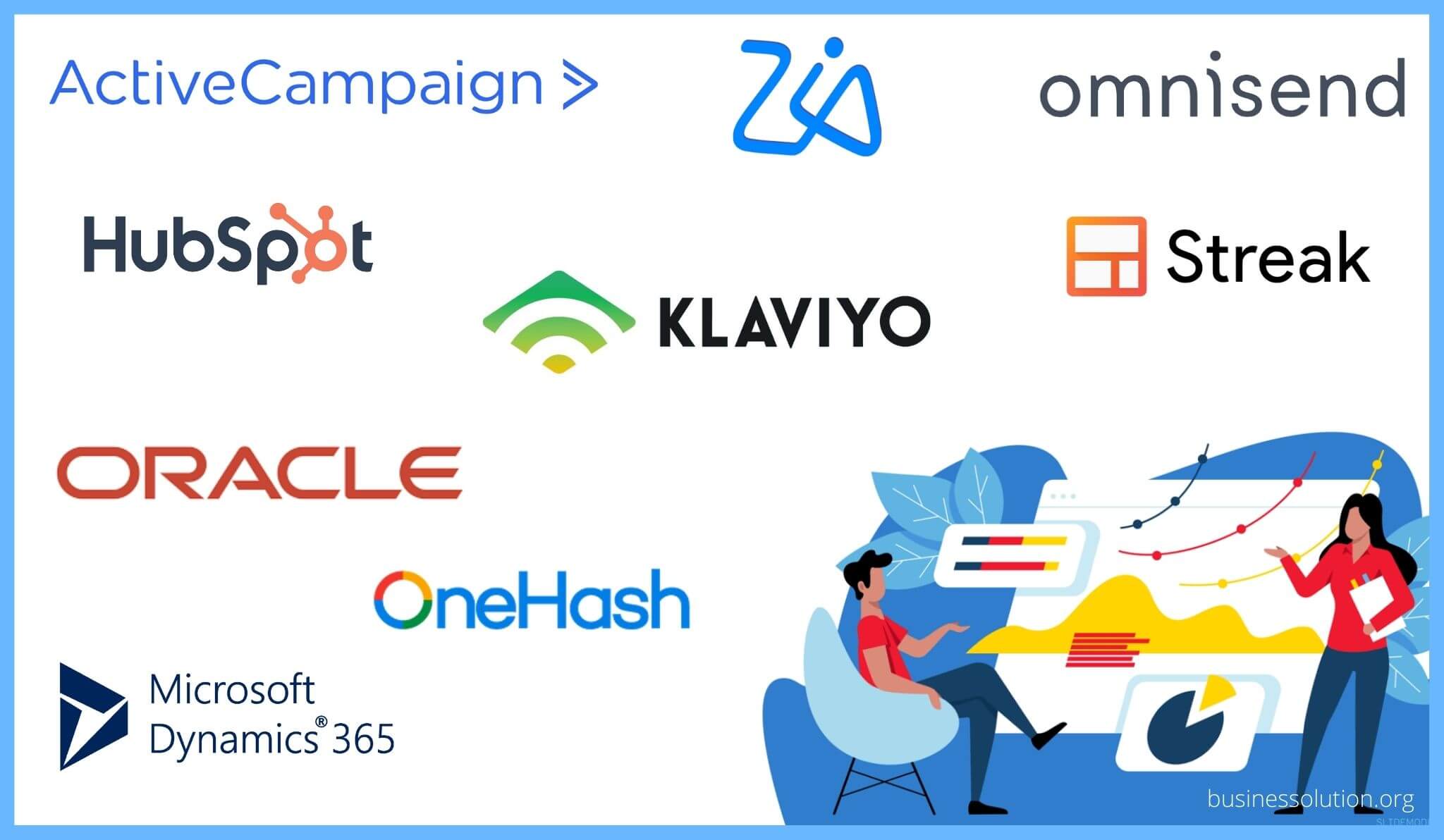
AI-powered CRM software becomes even more valuable when it connects seamlessly with other mission-critical business systems. Integration with platforms such as ERP, marketing automation suites, and customer service applications allows organizations to unify processes, streamline workflows, and create a single source of truth for customer interactions. This integration not only reduces silos but also enhances the value derived from data-driven insights across departments.
A well-integrated CRM ecosystem ensures that teams have real-time access to the latest customer information, enabling more personalized service and efficient internal operations. Organizations that successfully synchronize their AI-driven CRM systems with other business tools consistently report higher productivity, improved collaboration, and better customer outcomes.
Best Practices for System Integration
Effective integration between AI-powered CRM software and other business tools hinges on strategic planning and robust execution. By adhering to industry best practices, organizations can minimize disruptions and maximize the benefits of interconnected systems.
Below are key considerations to ensure successful integration:
- Adopt open APIs and standard data formats to facilitate smooth information exchange between systems, reducing compatibility issues and future-proofing integrations.
- Leverage middleware or iPaaS (Integration Platform as a Service) solutions to manage data flows, automate synchronizations, and monitor integration health in real time.
- Establish clear data governance policies that address access rights, data quality, and compliance across integrated platforms.
- Prioritize integration points that deliver the most business value, such as syncing sales data from CRM to ERP for order fulfillment or linking marketing automation tools to CRM for enriched lead profiles.
- Involve cross-functional teams (IT, sales, marketing, customer service) early in the integration planning process to ensure all requirements and dependencies are captured.
Synchronizing Customer Data Across Channels and Devices
Consistent customer data across all touchpoints forms the backbone of a unified customer experience. Synchronization ensures customers receive relevant communications and support no matter the channel or device they use.
Key procedures for maintaining synchronized customer data include:
- Implementing real-time data replication between CRM, ERP, and customer support platforms to avoid inconsistencies and delays.
- Utilizing master data management (MDM) systems to maintain a single, authoritative record of customer information that all integrated tools reference.
- Adopting customer identity resolution techniques that match and merge profiles from different channels, such as email, phone, and social media interactions.
- Enabling bidirectional data flows so updates made in one system automatically reflect in others, reducing manual entry and errors.
- Applying robust security measures, including encryption and access controls, to protect customer data as it moves between devices and platforms.
Unified data synchronization is essential for delivering a consistent, personalized, and trustworthy experience at every customer touchpoint.
Workflow Automations Enabled by Integration
Seamless integration between AI-powered CRM and other business platforms unlocks a new level of workflow automation, eliminating manual tasks and accelerating processes.
Integrations enable the automation of complex workflows, such as:
- Automatically routing new leads captured via web forms in a marketing automation platform directly into the CRM for immediate sales follow-up, with AI scoring prioritizing the hottest leads.
- Triggering support tickets in a customer service platform when a customer submits negative feedback through any communication channel logged within the CRM.
- Syncing sales quotes generated in the CRM with the ERP system for instant inventory checks, pricing validation, and seamless order processing, ensuring accurate fulfillment without redundant data entry.
- Initiating personalized marketing campaigns based on customer behavior recorded in the CRM, leveraging data such as recent purchases or support interactions across channels.
For instance, a global retailer using Salesforce CRM integrated with SAP ERP and HubSpot marketing automation can automatically update inventory status after every sale, trigger targeted email campaigns for back-in-stock items, and provide customer service agents with real-time order histories—all without manual intervention.
Well-orchestrated automations empower teams to focus on high-value work, improve response times, and create a unified, responsive customer journey.
Addressing Challenges and Considerations in AI-Driven CRM Adoption
As organizations transition to AI-powered CRM solutions, they encounter a range of obstacles that can impact successful implementation. Factors such as data privacy, user adaptation, system integration, and ethical handling of customer interactions all require careful attention. Recognizing and addressing these challenges is essential for realizing the full potential of AI-driven CRM initiatives.
AI-based CRM platforms promise enhanced customer experiences and streamlined workflows, but their adoption is not without complexities. Data security, staff readiness, and the integration of new technologies into existing business ecosystems are among the most significant hurdles. Overcoming these obstacles involves not only technical solutions but also strategic planning and a strong emphasis on responsible data management.
Common Obstacles in AI-Powered CRM Implementation
Businesses often face several prominent challenges when implementing AI-driven CRM systems, especially regarding compliance and user engagement. These challenges can hinder the realization of expected benefits if not addressed proactively.
- Data Privacy and Security: Companies must safeguard sensitive customer information while complying with regulations such as GDPR or CCPA. Breaches or mishandling of data can result in legal liabilities and loss of customer trust.
- User Training and Adoption: Employees may resist adopting new AI tools due to unfamiliarity, perceived complexity, or fear of job displacement, requiring comprehensive training programs and change management strategies.
- Integration with Legacy Systems: Existing business systems may not be immediately compatible with advanced AI features, leading to integration difficulties and potential disruptions in workflow continuity.
- Scalability Concerns: Scaling AI-driven solutions across departments or regions can present technical and operational issues, particularly for large enterprises with diverse user needs.
Strategies to Overcome Integration and Scalability Challenges
Effectively integrating AI-powered CRM solutions into existing infrastructures and ensuring scalability demands a structured approach. The following strategies help organizations navigate these technical and operational complexities:
To ensure seamless integration and scalable growth, companies should adopt best practices that support both short-term deployment and long-term system resilience. The following strategies have proven effective in real-world implementations:
- Phased Rollout: Implement AI features gradually, starting with pilot programs in select departments before organization-wide deployment. This allows for feedback, adjustment, and minimizes operational disruptions.
- Modular Architecture: Utilize CRM platforms built on flexible, modular frameworks that support plug-and-play integration with other business tools and allow for incremental upgrades as needs evolve.
- Robust API Support: Prioritize solutions with well-documented APIs to facilitate seamless data exchange and process automation across existing applications and third-party services.
- Vendor Collaboration: Foster strong partnerships with CRM solution providers to leverage their expertise in custom integration, system optimization, and ongoing support.
- Scalability Planning: Design infrastructure and data storage with future growth in mind, using cloud-based services that offer dynamic scaling, load balancing, and global accessibility.
“Successful AI-CRM adoption hinges on aligning technology capabilities with organizational readiness and long-term business objectives.”
Ethical Considerations in AI-Based Customer Interactions and Data Management
The integration of AI into CRM processes brings forward ethical responsibilities that extend beyond compliance. Transparent data use, bias mitigation, and maintaining human oversight are fundamental to building trust and ensuring responsible AI deployment.
Modern organizations must address ethical implications to foster customer confidence and meet societal expectations. The following are key ethical considerations and best practices:
- Transparency and Explainability: Clearly communicate to customers when and how AI is being used in their interactions. Provide explanations for AI-driven decisions to ensure users understand how outcomes are determined.
- Bias and Fairness: Regularly audit AI models for potential biases that could result in unfair customer treatment. Deploy diverse training datasets and include human-in-the-loop review to verify fairness.
- Consent and Data Ownership: Explicitly obtain customer consent for data collection and AI-driven processing. Clarify data ownership policies and offer options for data access, correction, or deletion.
- Security and Confidentiality: Implement strong encryption, access controls, and monitoring to protect customer data throughout its lifecycle, minimizing risks of unauthorized access or misuse.
- Maintaining Human Touch: Balance automation with human oversight to ensure empathy and contextual understanding, especially in sensitive or high-stakes customer interactions.
“Ethical stewardship in AI-powered CRM is not just a regulatory requirement—it’s a competitive differentiator that strengthens customer loyalty and brand reputation.”
Industry Use Cases and Success Stories
AI-powered CRM software is redefining how organizations across different sectors engage with their customers, streamline operations, and unlock new growth opportunities. By leveraging advanced analytics, automation, and real-time insights, businesses are seeing measurable improvements in customer satisfaction, operational efficiency, and bottom-line performance.
The applications of AI-enhanced CRM solutions vary significantly by industry, with each sector harnessing unique functionalities to address specific business challenges. From retail and financial services to healthcare and hospitality, AI-driven CRM platforms are driving innovation and delivering tangible results.
Comparative Overview of Industry-Specific AI CRM Applications
To highlight the diversity and measurable impact of AI-powered CRM, the following table presents a cross-industry comparison. It summarizes how various sectors apply these technologies, the core benefits realized, and some quantifiable outcomes documented in recent years.
| Industry | Application Example | Key Benefits | Measurable Outcomes |
|---|---|---|---|
| Retail & Ecommerce | Personalized product recommendations, AI chatbots for customer service, predictive inventory management |
|
|
| Financial Services | AI-driven client segmentation, fraud detection, automated loan approvals |
|
|
| Healthcare | Automated patient follow-ups, appointment scheduling, predictive care recommendations |
|
|
| Hospitality & Travel | Dynamic pricing optimization, AI-powered guest communication, personalized travel offers |
|
|
Illustrative Scenarios Demonstrating Tangible Impact
Real-world implementations of AI-powered CRM showcase the transformative potential of these technologies in enhancing customer experiences and operational excellence. The following scenarios illustrate how different industries are achieving success with AI-driven CRM tools.
- Retail Loyalty Enhancement: A global apparel retailer integrated AI into its CRM to analyze shopping behavior and automatically segment customers. Targeted campaigns based on previous purchases led to a 25% increase in repeat transactions within six months.
- Banking Virtual Assistants: A leading European bank utilized an AI-powered CRM assistant to automate customer inquiries and proactively alert clients about unusual account activity. This resulted in a 40% reduction in call center volume and strengthened customer trust.
- Healthcare Patient Engagement: A major hospital network deployed AI-enabled CRM messaging to remind patients of upcoming appointments and provide tailored health tips. Patient no-show rates decreased by nearly 30%, and satisfaction survey scores improved notably.
- Travel Personalization: An international airline adopted AI within its CRM to generate personalized travel deals and proactively suggest itinerary changes during disruptions. This dynamic communication improved customer ratings and drove a 15% increase in ancillary sales.
AI-powered CRM is not just about efficiency—it’s fundamentally changing the way businesses connect with and understand their customers, leading to lasting competitive advantages.
Future Trends in AI-Powered CRM Software
The evolution of AI-powered CRM software continues to accelerate, driven by rapid advancements in machine learning, data analytics, and natural language technologies. As businesses increasingly rely on these systems to gain a competitive edge, new features and capabilities are emerging that promise to redefine customer engagement and operational efficiency. Understanding these trends helps organizations prepare for the next wave of digital transformation in customer relationship management.
With the growing sophistication of AI, CRM platforms are beginning to leverage technologies once considered futuristic—like conversational AI, emotion detection, and autonomous CRM agents—to deliver hyper-personalized and proactive customer experiences. At the same time, the push for transparency and ethical AI is fostering progress in explainable AI, making CRM decisions more understandable and trustworthy. These innovations are not only reshaping how companies interact with customers but also influencing the expectations customers have for rapid, intelligent service.
Conversational AI and Voice-Driven Interfaces
Conversational AI is transforming CRM systems by enabling natural, real-time interactions between businesses and customers through both text and voice channels. These advancements go well beyond traditional chatbots, incorporating sophisticated natural language processing (NLP) to understand intent, context, and even subtle linguistic cues.
- Modern CRM platforms integrate AI-powered virtual assistants capable of scheduling meetings, resolving common queries, and providing product recommendations, all through conversational interfaces.
- Industry leaders like Salesforce Einstein and Microsoft Dynamics 365 are embedding voice-driven capabilities, allowing sales teams to input data, retrieve insights, and update records hands-free, increasing productivity and data accuracy.
- Conversational AI enables seamless omnichannel support, ensuring consistent and intelligent responses across web, mobile, social media, and messaging apps. This creates a unified brand experience that adapts to customer preferences.
Emotion Detection and Sentiment Analysis
AI-enabled emotion detection and sentiment analysis are empowering CRM systems to better understand and react to customer emotions, driving more empathetic and effective engagement.
- Natural language understanding models analyze written or spoken customer communications, detecting emotional tone and sentiment in real time. This enables support teams to prioritize urgent cases—such as frustrated or dissatisfied customers—for immediate attention.
- Email and chat sentiment tracking allows CRM users to flag accounts at risk of churn and proactively intervene with tailored offers or personalized outreach, reducing attrition rates.
- Companies like IBM Watson and Zendesk employ emotion AI to enhance agent performance by recommending empathetic responses and flagging negative sentiment, which boosts customer satisfaction scores and loyalty.
“By 2025, Gartner predicts that customer service organizations using emotion analytics will outperform competitors by 25% in customer satisfaction metrics.”
Autonomous CRM Agents and Workflow Automation
The emergence of autonomous CRM agents marks a leap toward self-managing CRM systems capable of independently executing routine tasks and complex workflows based on AI-driven insights.
- Autonomous agents can handle repetitive tasks such as data entry, lead qualification, and follow-up sequences, freeing human staff to focus on high-value activities.
- Advanced CRM solutions can autonomously trigger personalized marketing campaigns, adjust sales pipeline stages, and manage customer journeys based on predictive analytics and historical data.
- Automation extends to cross-functional processes, enabling seamless coordination between sales, marketing, and customer service without manual intervention. For instance, after detecting a significant account interaction, the CRM can automatically notify relevant teams, update records, and schedule follow-up actions.
Adaptive CRM Systems and Evolving Customer Expectations
AI-driven CRM platforms are increasingly adaptive, learning from ongoing interactions and external trends to continuously refine their recommendations and workflows.
- Machine learning algorithms analyze behavioral patterns and market data, enabling CRMs to predict customer needs and proactively offer new solutions or support, staying ahead of shifting expectations.
- Dynamic personalization engines adjust communication strategies and content in real time, ensuring relevance as customer preferences, demographics, or purchasing habits evolve.
- Integration with IoT devices and third-party data sources allows CRM systems to contextualize interactions, delivering seamless, context-aware experiences across digital and physical touchpoints.
Advancements in Explainable AI for CRM Transparency
As AI decisions increasingly influence customer outcomes, there is a growing need for explainability and transparency within CRM systems.
- Explainable AI (XAI) frameworks provide clear, human-readable justifications for recommendations, such as why a certain lead was prioritized or a specific offer was made. This builds trust with both users and customers, and facilitates regulatory compliance.
- CRM vendors are incorporating dashboards and visualizations that break down AI-driven predictions and actions, allowing users to audit outcomes and correct biases or errors.
- For example, SAP and Oracle have piloted XAI modules that display factors influencing customer scoring or product recommendations, empowering users to make informed decisions based on AI insights.
“Transparency in AI-driven CRM decisions enhances user confidence, leading to higher adoption rates and more ethical customer engagement practices.”
Illustrative Example: The Retail Banking Sector, AI-Powered CRM Software: Transforming Customer Relationships
To illustrate these trends, consider a leading retail bank implementing next-generation CRM software. Their AI-powered conversational agents handle thousands of daily customer inquiries through voice and chat, while emotion detection algorithms flag at-risk customers who express frustration during digital interactions. Autonomous workflow automation ensures that high-value leads are immediately routed to the appropriate advisors for personalized follow-up. At the same time, explainable AI dashboards provide compliance teams with detailed records of AI-driven product recommendations, ensuring transparency and accountability. This holistic approach results in improved customer satisfaction, reduced churn, and a demonstrable return on CRM investment.
Final Wrap-Up: AI-Powered CRM Software: Transforming Customer Relationships
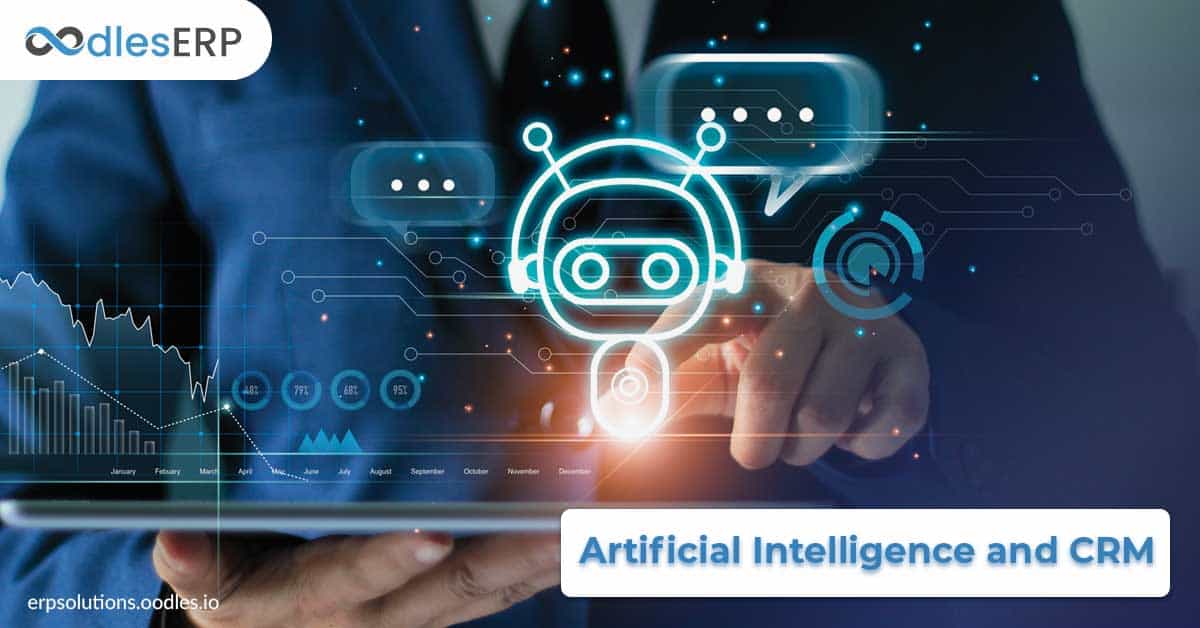
In summary, AI-powered CRM software is reshaping the landscape of customer relationship management by unlocking new levels of efficiency, personalization, and innovation. As businesses continue to embrace intelligent automation and data-driven strategies, those leveraging AI in their CRM systems are better equipped to build lasting customer loyalty and drive growth. Staying informed about these advancements ensures your organization remains agile and ahead of the curve in an ever-evolving digital world.
FAQs
What makes AI-powered CRM software different from traditional CRM systems?
AI-powered CRM software leverages artificial intelligence technologies such as machine learning and natural language processing to automate tasks, analyze data, deliver personalized experiences, and provide predictive insights, which goes far beyond the capabilities of traditional CRM systems.
Is AI-powered CRM suitable for small businesses?
Yes, many AI-powered CRM solutions offer scalable features and pricing plans that cater to businesses of all sizes, including small and medium enterprises. They can help smaller organizations automate processes and compete with larger companies.
How secure is customer data within AI-powered CRM platforms?
Reputable AI-powered CRM software providers implement robust security measures such as encryption, user authentication, and compliance with data privacy regulations to ensure customer data is protected at all times.
Can AI-powered CRM integrate with other business tools?
Most AI-powered CRM systems are designed to integrate seamlessly with tools like ERP, marketing automation platforms, and customer service software, making it easier to synchronize data and automate workflows across your tech stack.
How long does it take to implement an AI-powered CRM solution?
The implementation timeline varies depending on the complexity of your business processes, the size of your organization, and the CRM provider. However, many modern solutions offer guided onboarding and integrations designed to speed up the setup process.

